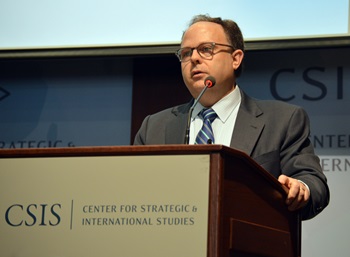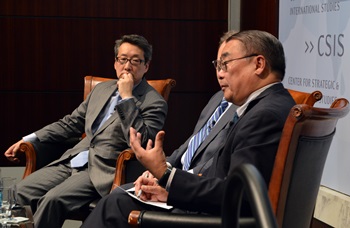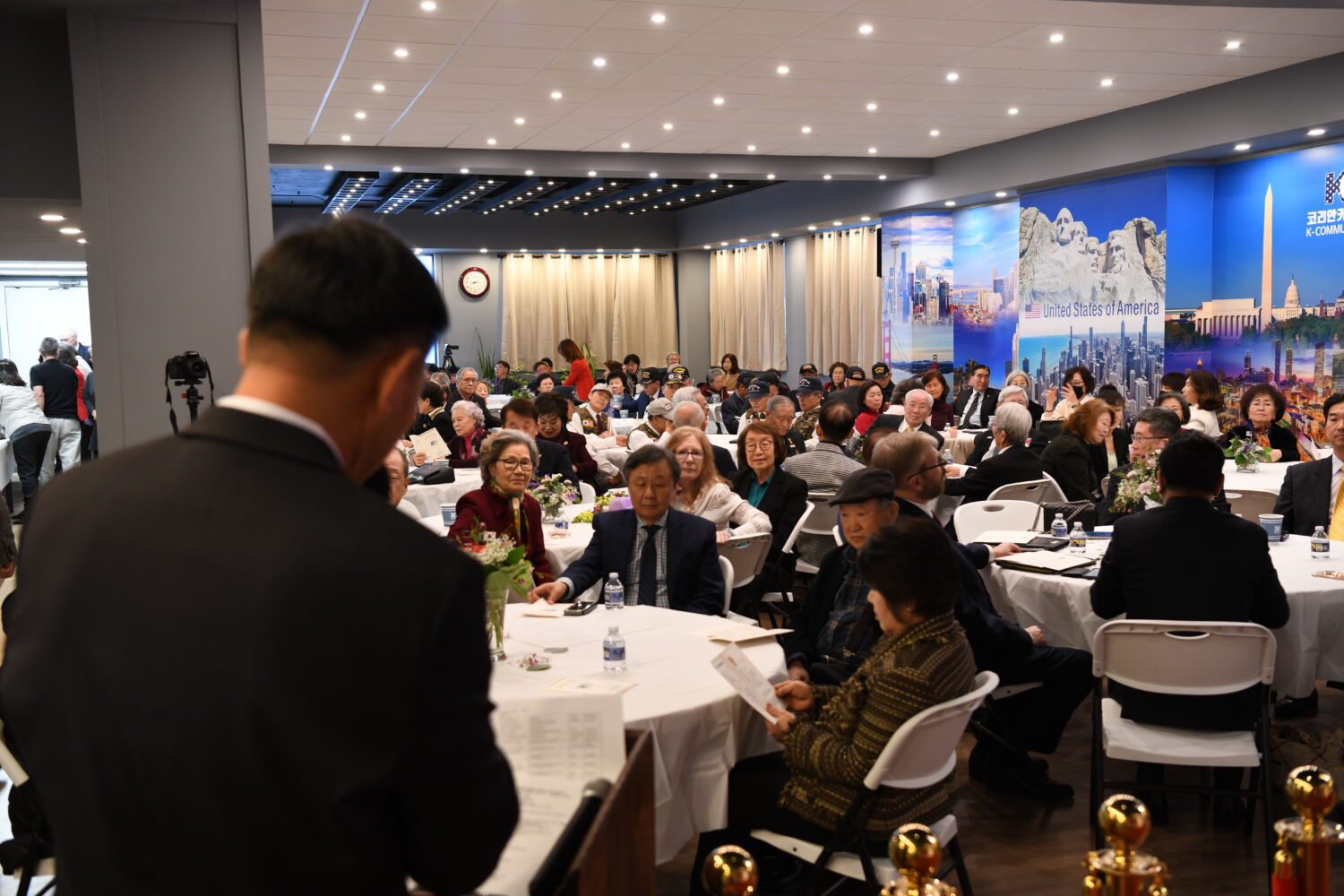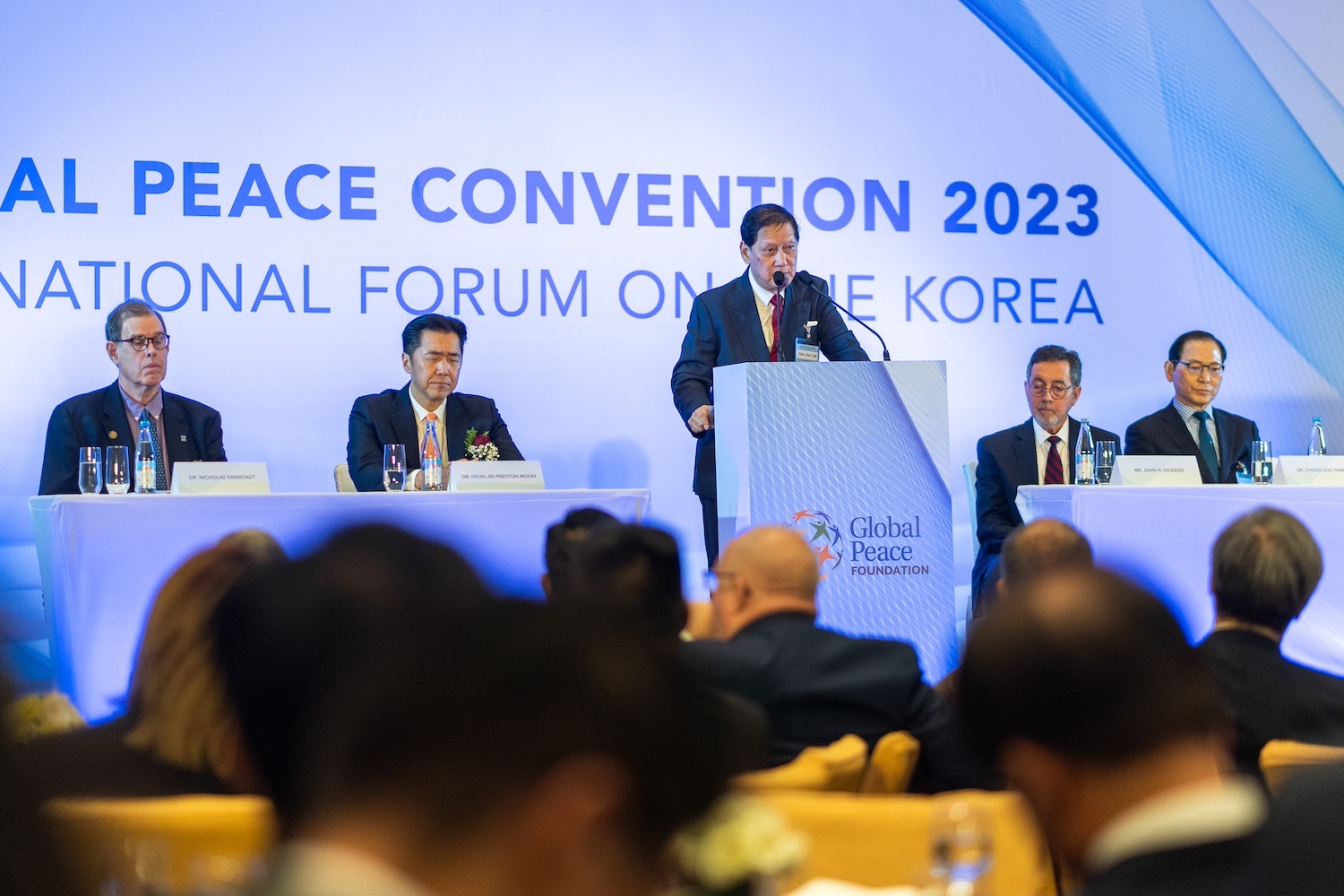Addressing a range of issues relating to peace and security on the Korean peninsula at a forum on April 21, U.S. Special Envoy for the Six-Party Talks Sydney Seiler expressed cautious optimism about a growing convergence of interests among China, South Korea and the United States, with important implications for progress in denuclearization and shared prosperity in the region.

U.S. Special Envoy for the Six-Party Talks Sydney Seiler addresses a forum on China’s role in advancing peace on the Korean peninsula.
In opening remarks at the forum, “China’s Policy toward Korean Peninsula Unification,” at the Center for Strategic and International Studies (CSIS) in Washington DC, Ambassador Seiler told a full house that the United States and China have worked closely in recent years to “align and reconfirm” common goals.
“China seeks peace and stability in Northeast Asia; so do we,” Seiler said. “China seeks denuclearization of the Korean peninsula as a foundation for peace and stability. China understands the economic benefits of a peaceful and stable Korean peninsula, and so do we. And as a path toward these goals China seeks the return of North Korea to authentic and credible denuclearization negotiations; so do we. This consensus can form a firm foundation in the years ahead.”
The forum is the third in a series of programs addressing issues relating to Korean reunification, jointly sponsored by CSIS and the Global Peace Foundation. Representing the Global Peace Foundation, Publications Director Michael Marshall said the forum series originated in part from the publication of The Korean Dream (2014), by GPF Chairman Dr. Hyun Jin P. Moon. The book proposed new thinking about the processes and outcomes of reunification, and stressed historic values and cultural identity shared by both North and South. The book also brought special focus to the role of civil society in building bridges of understanding and cooperation across the Cold War divide.
Trade and security
Ambassador Seiler said another important long-term development has been improvement of PRC-ROK relations. Noting that China’s trade with South Korea is about 45 times the volume of trade with the DPRK, he said, “It is increasingly clear that it is Seoul and not Pyongyang that is the natural partner for Beijing as it looks to the future.”

Dr. Quansheng Zhao, Professor of International Relations and Chair of the Asian Studies Program Research Council at American University, discusses Chinese foreign policy priorities. CSIS Korea Chair and forum moderator Dr. Victor Cha looks on.
Repeatedly underscoring the stark choices presented to North Korea in the Six-Party framework—“the path of prosperity and denuclearization or the current path of ignoring international obligations and facing greater isolation and pressure”–the ambassador significantly added that current negotiations with Iran show U.S. “willingness to meaningfully engage with countries with whom there are long-standing differences.”
Ambassador Seiler also said U.S. support of South Korean President Park Geun-hye was a centerpiece the country’s approach to North Korea. He praised President Park for her “untiring efforts to move inter-Korea relations forward with a balance of principle and pragmatism” and for “the positive and vivid picture she has painted” of the benefits of reconciliation and denuclearization both for the Korean people and benefits to region that reunification would bring.

The CSIS-GPF forum presented an affirmative perspective on China’s role in advancing peace and security on the Korean peninsula and in Northeast Asia.
In remarks following Ambassador Seiler’s presentation, Dr. Quansheng Zhao, Professor of International Relations and Chair of the Asian Studies Program Research Council at American University, emphasized three approaches of China’s foreign policy toward Korea.
First, he said, it was very much influenced by many centuries of shared history. Second, following reforms during the Deng era and normalization in relations with South Korea in 1992, foreign policy was increasingly pragmatic and national-interest driven. And third, China’s foreign policy reflected a “co-management approach,” informed by a greater global governance perspective, specifically in terms of the Six Party Talks. Dr. Zhao said a nuclear-free peninsula is also a key priority but there is still internal debate, with some views recognizing the usefulness of North Korea as a buffer state. “China is much more pluralistic,” he noted, “with different schools of thought.”
The forum was moderated by Dr. Victor Cha, Senior Adviser and Korea Chair at the Center for Strategic and International Studies and Professor and Director of Asian Studies at Georgetown University. Future forums planned on Korean reunification will present Russian and Japanese perspectives.



